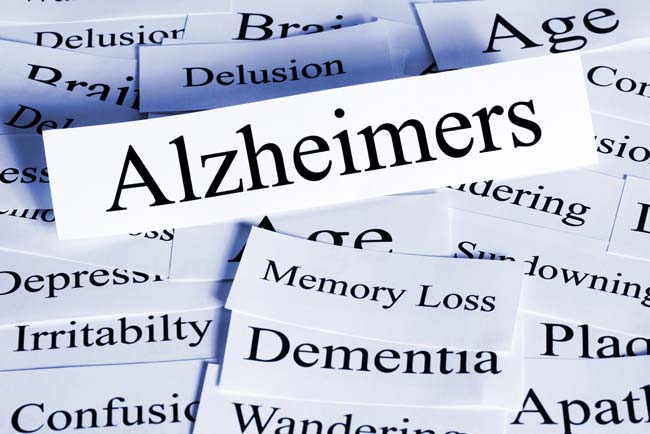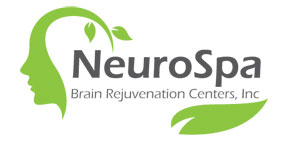TMS for Memory Loss

What is memory loss: Memory loss is a symptom and not necessarily a disease. Overall, memory loss is defined as forgetfulness or amnesia. Memory loss is categorized into several types based on the contents of what was forgotten. For example, loss of memory for specific events such as birth dates, historical facts, …etc. is explicit memory while memory of life events or images of prior experiences represents implicit memory. Memory for specific tasks such as riding a bicycle or operating an oven is known as procedural memory. Most people have experienced memory loss of some kind such as appointments, where car is parked, or list of groceries. What distinguishes abnormal or disease-process memory loss is 1) worsening signs of memory loss over time, and 2) disruption of daily routine activities due to memory loss. Memory loss can be seen in all age groups and does not only affect the elderly.
What causes memory loss: There are various causes for memory loss. The most common causes of memory loss in individuals younger than 65 generally include poor sleep, stress, anxiety, depression, poor attention, hearing loss, hormonal abnormalities, stroke, alcohol and/or other substance intoxication. The most common cause of memory loss in elderly individuals older than 65 include neurodegenerative conditions such as Alzheimer’s or other types of dementia.
The cognitive processes involved in storage and retrieval of memory involves several brain regions and networks including areas that control language, attention span, short term memory loss, and retrieval of memory. Science has elucidated many of these anatomical landmarks including prefrontal cortex, hippocampus, amygdala, temporal lobe, and dorsolateral prefrontal cortex.
Alzheimer’s disease and other types of dementia are thought to be caused by abnormal protein processing and accumulation (specifically beta-amyloid and tau) and ultimate destruction of brain cells.
What are the tests to diagnose memory loss: Memory loss in general is best evaluated by 1) neurological and/or neuropsychological clinical evaluation; 2) use of imaging tests such as MRI imaging, blood tests, and electroencephalogram (EEG). More advanced imaging techniques increase accuracy and precision of diagnosis and include quantitative electroencephalogram (QEEG) or ‘brain mapping’ and standardized computerized digital testing (see link on website).
What is the treatment of memory loss: Proper treatment of memory loss involves treating the underlying cause whether it is treating the anxiety, poor mood, depression, stress, or insomnia. When cause is dementia, conventional therapy involves prescribing medications that attempt to increase the chemical acetylcholine. Unfortunately, current medication options are not effective in stopping the progression of disease and can be associated with several side-effects. Recent randomized clinical research trials have shown clear benefits of transcranial magnetic stimulation (TMS) of the prefrontal cortex in improving cognitive function in patients suffering from dementia. This trial showed that the benefits of this ground-breaking treatment were superior to that achieved with current medications.
What is the process of treatment when using TMS for memory loss:
What is the process of treatment when using TMS for memory loss? The process of TMS begins with an evaluation with neurologist to discuss signs, symptoms, and review available laboratory and imaging data. Additional testing with QEEG and/or fMRI may be recommended. TMS treatments for memory loss usually last 30 to 45 minutes. Duration of treatment lasts between two to six weeks and is determined based on individual characteristics. Outcomes of therapy using TMS for memory loss are measured with precise digital testing, brain mapping, clinical evaluations, and computerized exams. Additional information regarding TMS is available on this website:
To make an appointment, call (949) 652-7301.
ASSESSMENT
1) qEEG
2) Brain Mapping
3) Neurological consultation
TREATMENT
1) r TMS
2) Neurofeedback
3) Dietary assessment and recommendations
References:
- J Neural Transm (2013) 120:813–819
- Ahmed Z, Wieraszko A (2006) Modulation of learning and hippocampal, neuronal plasticity by repetitive transcranial magnetic stimulation (rTMS). Bioelectromagnetics 27:288–294
- Ahmed MA, Darwish ES, Khedr EM, El Serogy YM, Ali AM (2012) Effects of low versus high frequencies of repetitive transcranial magnetic stimulation on cognitive function and cortical excitability in Alzheimer’s dementia. J Neurol 259:83–92
- Bellgowan PS, Buffalo EA, Bodurka J, Martin A (2009) Lateralized spatial and object memory encoding in entorhinal and perirhinal cortices. Learn Mem 16:433–438
- Bentwich J, Dobronevsky E, Aichenbaum S, Shorer R, Peretz R, Khaigrekht M, Marton RG, Rabey JM (2011) Beneficial effect of repetitive transcranial magnetic stimulation combined with cognitive training for the treatment of Alzheimer’s disease: a proof of concept study. J Neural Transm 118:463–471
- Birks J (2006) Cholinesterase inhibitors for Alzheimer’s disease. Cochrane Database Syst Rev 1:CD005593. doi:10.1002/146518 58.CD005593 Bliss TV, Collingridge GL (1993) A synaptic model of memory: long-term potentiation in the hippocampus. Nature 361:31–39 Buck BH,
- Black SE, Behrmann M, Caldwell C, Bronskill MJ (1997) Spatial- and object-based attentional deficits in Alzheimer’s disease. Relationship to HMPAO-SPECT measures of parietal perfusion. Brain 120:1229–1244
- Cotelli M, Manenti R, Cappa SF, Geroldi C, Zanetti O, Rossini PM, Miniussi C (2006) Effect of transcranial magnetic stimulation on action naming in patients with Alzheimer disease. Arch Neurol 63:1602–1604
- Cotelli M, Calabria M, Manenti R, Rosini S, Zanetti O, Cappa SF, Miniussi C (2011) Improved language performance in Alzheimer disease following brain stimulation. J Neurol Neurosurg Psychiatry 82:794–797
- Courtney C, Farrell D, Gray R, Hills R, Lynch L, Sellwood E, Edwards S,HardymanW,RafteryJ,CromeP,LendonC,ShawH,Bentham P, AD2000 Collaborative Group (2004) Long-term donepezil treatment in 565 patients with Alzheimer’s disease (AD2000): randomised double-blind trial. Lancet 363:2105–2115
- Cummings JL, Mega M, Gray K, Rosenberg-Thompson S, Carusi DA, Gornbein J (1994) The Neuropsychiatric Inventory: comprehensive assessment of psychopathology in dementia. Neurology 44:2308–2314
- Freitas C, Mondrago ´n-Llorca H, Pascual-Leone A (2011) Noninvasive brain stimulation in Alzheimer’s disease: systematic review and perspectives for the future. Exp Gerontol 46:611–627
- Grafman J, Pascual-Leone A, Alway D, Nichelli P, Gomez-Tortosa E, Hallett M (1994) Induction of a recall deficit by rapid-rate transcranial magnetic stimulation. NeuroReport 5:1157–1160 Guy W (1976) Clinical global impressions. In: ECDEU Assessment Manual for Psychopharmacology, revised. National Institute of Mental Health, Rockville, pp 218–222
- Harpaz Y, Levkovitz Y, Lavidor M (2009) Lexical ambiguity resolution in Wernicke’s area and its right homologue. Cortex 45:1097–1103
- Hoogendam JM, Ramakers GM, DiLazzaro V (2010) Physiology of repetitive transcranial magnetic stimulation of the human brain. Brain Stimul 3:95–118 Kimbrell TA, Little JT, Dunn RT, Frye MA, Greenberg BD, Wassermann EM, Repella JD, Danielson AL, Willis MW, Benson BE, Speer AM, Osuch E, George MS, Post RM (1999) Frequency dependence of antidepressant response to left prefrontal repetitive transcranial magnetic stimulation (rTMS) as a function of baseline cerebral glucose metabolism. Biol Psychiatry 46:1603–1613
- Lisanby SH, Luber B, Perera T, Sackeim HS (2000) Transcranial magnetic stimulation: applications in basic neuroscience and neuropsychopharmacology. Int J Neuropsychopharmacol 3:259–273
- Mantovani A, Lisanby SH (2004) Applications of transcranial magnetic stimulation to therapy in psychiatry. Psychiatric Times 21:1–2
- Nardone R, Bergmann J, Christova M, Caleri F, Tezzon F, Ladurner G, Trinka E, Golaszewski S (2012) Effect of transcranial brain stimulation for the treatment of Alzheimer disease: a review. Int J Alzheimers Dis. Article ID 687909
- Pascual-Leone A, Tormos JM, Keenan J, Tarazona F, Can ˜ete C, Catala ´ MD (1998) Study and modulation of human cortical
- M. Rabey et al. excitability with transcranial magnetic stimulation. J Clin Neurophysiol 15:333–334 Perry EK, Perry RH, Blessed G, Tomlinson BE (1977) Necropsy evidence of central cholinergic deficits in senile dementia. Lancet 1:189
- Rafii MS, Ellis RJ, Corey-Bloom J (2009) Dementing and degenerative disorders. In: Corey-Bloom J, David RB (eds) Clinical adult neurology. Demos Medical, New York, pp 395–417 Reichman WE, Fiocco AJ, Rose NS (2010) Exercising the brain to avoid cognitive decline: examining the evidence. Aging Health 6:565–584 Rockwood K, Fay S, Gorman M, Carver D, Graham JE (2007) The clinical meaningfulness of ADAS-Cog changes in Alzheimer’s disease patients treated with donepezil in an open-label trial. BMC Neurology 30:7–26 Rogalsky C, Matchin W, Hickok G (2008) Broca’s area, sentence comprehension, and working memory: an fMRI Study. Front Hum Neurosci 2:14 Rosen WG, Mohs RC, Davis KL (1984) A new rating scale for Alzheimer’s disease. Am J Psychiatry 141:1356–1364 Rossi S, Hallett M, Rossini PM, Pascual-Leone A, Safety of TMS Consensus Group (2009) Safety, ethical considerations, and
- application guidelines for the use of transcranial magnetic stimulation in clinical practice and research. Clin Neurophysiol 120:2008–2039 Siebner HR, Rothwell J (2003) Transcranial magnetic stimulation: new insights into representational cortical plasticity. Exp Brain Res 148:1–16 Sitzer DI, Twamley EW, Jeste DV (2006) Cognitive training in Alzheimer’s disease: a meta-analysis of the literature. Acta Psychiatr Scand 114:75–90 Spector A, Thorgrimsen L, Woods B, Royan L, Davies S, Butterworth M, Orrell M (2003) Efficacy of an evidence-based cognitive stimulation therapy programme for people with dementia: randomised controlled trial. Br J Psychiatry 183:248–254 Wagner T, Valero-Cabre A, Pascual-Leone A (2007) Noninvasisve human brain stimulation. Annu Rev Biomed Eng 9:527–565 Zheng XM (2000) Regional cerebral blood flow changes in drugresistant depressed patients following treatment with transcranial magnetic stimulation: a statistical parametric mapping analysis. Psychiatry Res 100:75–80

